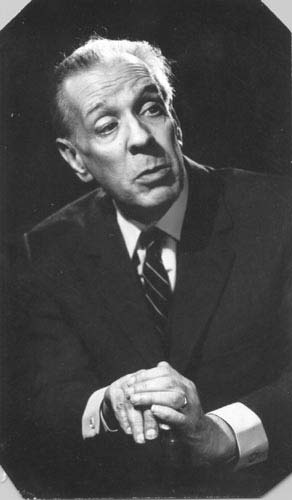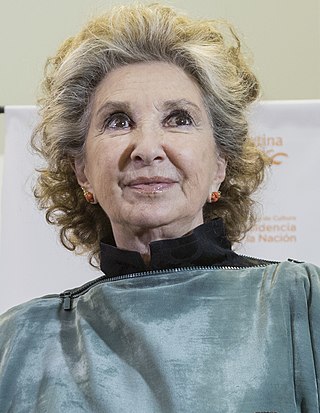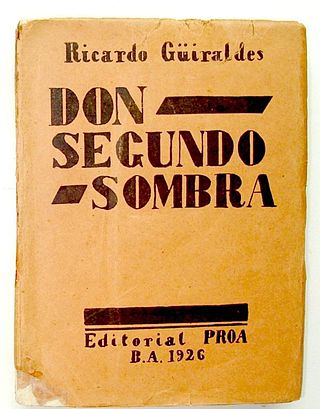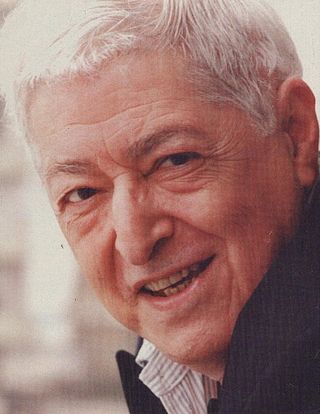Related Research Articles

Jorge Francisco Isidoro Luis Borges Acevedo was an Argentine short-story writer, essayist, poet and translator, as well as a key figure in Spanish-language and international literature. His best-known books, Ficciones (transl. Fictions) and El Aleph, published in the 1940s, are collections of short stories exploring themes of dreams, labyrinths, chance, infinity, archives, mirrors, fictional writers and mythology. Borges's works have contributed to philosophical literature and the fantasy genre, and have had a major influence on the magic realist movement in 20th century Latin American literature.

Adolfo Bioy Casares was an Argentine fiction writer, journalist, diarist, and translator. He was a friend and frequent collaborator with his fellow countryman Jorge Luis Borges. He is the author of the Fantastique novel The Invention of Morel.

This is a bibliography of works by Argentine short-story writer, essayist, poet, and translator Jorge Luis Borges (1899–1986).

Norma Aleandro is an Argentine actress. She is considered one of the most celebrated and prolific Argentine actresses of all time and is recognized as a cultural icon in her home country.

Bernardo Verbitsky was an Argentine writer and journalist.
Sergio Kleiner, also credited as Sergio Klainer, is an Argentine-born Mexican film and television actor.

Gaucho literature, also known as gauchesco ("gauchoesque") genre was a literary movement purporting to use the language of the gauchos, comparable to the American cowboy, and reflecting their mentality. Although earlier works have been identified as gauchoesque, the movement particularly thrived from the 1870s to 1920s in Argentina, Uruguay and southern Brazil after which the movement petered out, although some works continued to be written. Gauchoesque works continue to be read and studied as a significant part of Argentine literary history.
Ricardo Eufemio Molinari was an Argentine poet. Molinari was born in Buenos Aires and was orphaned when he was five. Molinari's first work was El Imaginero (1927). He contributed to the avant-garde review Martín Fierro along with other Argentine writers as Jorge Luis Borges, whom he befriended. In 1933 he traveled to Spain where he met with the members of the Generation of '27. After he married, he worked in the National Congress of Argentina until his retirement. In 1958 he was awarded the Argentine National Prize for Poetry for his work Unida Noche and in 1968 became a member of the country's Academia Argentina de Letras. One of his most famous books is also one of his last: La escudilla (1973). The poetry collection Las sombras del pájaro tostado (1975) collects almost all of his works.

Mecha Ortiz was a classic Argentine actress who appeared in films between 1937 and 1981, during the Golden Age of Argentine Cinema. At the 1944 Argentine Film Critics Association Awards, Ortiz won the Silver Condor Award for Best Actress for her performance in Safo, historia de una pasión (1943), and won it again in 1946 for her performance in El canto del cisne (1945). She was known as the Argentine Greta Garbo and for playing mysterious characters, who suffered by past misfortunes in love, mental disorders, or forbidden love. Safo, historia de una pasión was the first erotic Argentine film, though there was no nudity. She also played in the first film in which a woman struck a man and the first film with a lesbian romance. In 1981, she was awarded the Grand Prize for actresses from the National Endowment for the Arts.

Don Segundo Sombra is a 1926 novel by Argentine rancher Ricardo Güiraldes. Like José Hernández's poem of the 1870s, Martín Fierro, its protagonist is a gaucho. However, unlike Hernandez's poem, Don Segundo Sombra does not romanticize the figure of the gaucho, but simply examines the character as a shadow (sombra) cast across Argentine history.

Julio Porter was an Argentine screenwriter and film director known as one of the most prolific screenwriters and film directors in the history of the Cinema of Argentina.

Eduardo Montes-Bradley is a documentary filmmaker best known for Evita, Rita Dove: An American Poet, and Harto The Borges. His most recent films were Black Fiddlers and Daniel Chester French: American Sculptor

Mario Trejo was an Argentine poet, playwright, screenwriter, and journalist.

Alita Blanca Barchigia, better known as Alita Román, was an Argentine film actress of the Golden Age of Argentine Cinema (1940–1960).

Susana Calandrelli was an Argentine writer and teacher.
María Esther Vázquez was an Argentine writer and journalist, best known as a collaborator and biographer of Jorge Luis Borges and Victoria Ocampo.
Jorge Goldenberg Hachero is a prolific screenwriter from Argentina.
Quebracho is an Argentine 1974 film directed by Ricardo Wullicher. It tells the story of "La Forestal," an English company extracting Quebracho trees between 1900 and 1963 in the northern province of Santa Fe. The wood and its main product, tannin, were highly coveted between 1918 and 1945 and became a focal point of political and social struggles connected with the evolution of trade unionism, as well as the emergence of the Radical Civic Union and Peronism. It is considered an iconic film of its period, if now somewhat dated.
Nora Cullen (1905–1990) was an Argentine actress. Cullen starred in several films with director Leonardo Favio, including El dependiente (1969), Nazareno Cruz y el Lobo (1975) and Soñar, soñar (1976). For her performance opposite Walter Vidarte and Graciela Borges in El dependiente, the Argentine Film Critics Association awarded her the Silver Condor Award for Best Supporting Actress in 1970. Cullen also worked in TV and radio and on television she was known for her role in La pasión de Florencio Sánchez opposite Alfredo Alcón. In radio theatre she worked on Radio Splendid. Guillermo Battaglia, who also featured with her, became her husband.
Héctor Dante Cincotta is an Argentine poet, scholar and literary critic, who received the Argentine National Prize for Literature in 1993, as well as other prizes. Among his more than seventy books, his poetry collections include “The Antiquity of the Clouds” and “The Testimony of Days”. Among his essayistic books are “Time and Nature in the Works of Ricardo E. Molinari”, “Studies in Argentine Poetry” and “Argentine Letters”. His works have been translated into Italian, French, English, German, Chinese, Turkish etc.
References
- 1 2 "The Ship of Fools". FilmFest Hamburg. Retrieved 9 November 2010.
- ↑ "Quebracho (Ricardo Wullicher 1972 Argentina)". RebelDeMule (in Spanish). Retrieved 9 November 2010.
- ↑ C. Jared Loewenstein (1993). A descriptive catalogue of the Jorge Luis Borges collection at the University of Virginia Library. University of Virginia Press. p. 148. ISBN 0-8139-1333-0 . Retrieved 9 November 2010.
- ↑ Leslie Bethell (1995). The Cambridge history of Latin America. Cambridge University Press. p. 514ff. ISBN 0-521-49594-6 . Retrieved 9 November 2010.
- ↑ Cine Nacional: Ricardo Wullicher
- ↑ Ricardo Wullicher at IMDb